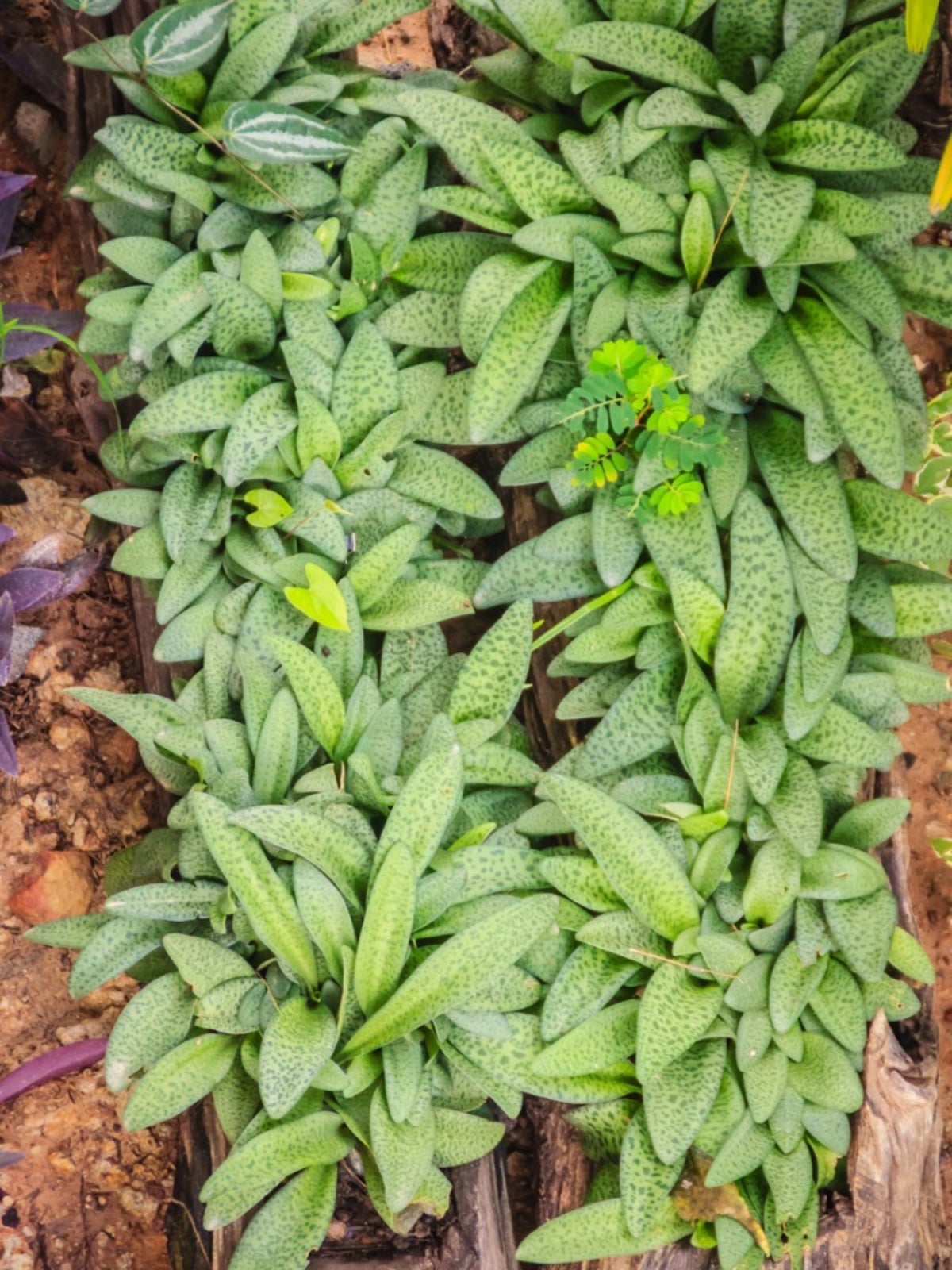African Hosta Care: Growing African Hostas In The Garden


African hosta plants, which are also called African false hosta or little white soldiers, somewhat resemble true hostas. They have similar foliage but with spotting on the leaves that add a new element to beds and gardens. Grow these warm weather plants for a unique, new garden feature.
About African Hosta Plants
The African hosta goes by a few different Latin names, including Drimiopsis maculata and Ledebouria petiolata. Its placement in a plant family is not fully agreed upon, with some experts putting it in the lily family and others with hyacinth and related plants. Regardless of its classification, African hosta is a warm weather plant, growing best outdoors in USDA zones 8 through 10. What draws most gardeners to the African hosta is its unique, spotted foliage. The leaves are oblong in shape and fleshy. Most noticeably, the leaves are green with spots that may be darker green or even dark purple. Spotted foliage is not typical, so these plants add a bit of flair and visual interest to the garden. The flowers are nice but not spectacular. They are white or white with a little bit of green and grow in clusters. Each individual flower is bell-shaped.
How to Grow African Hosta
Growing African hostas isn’t difficult. The plants grow like a groundcover, but also do well in clumps or edges or even in containers. Growth is slow, though, so if you want to fill in a space with groundcover, put the plants fairly close together. African hostas do best in shade or partial shade, much like true hostas. The more sun they get, the more watering your plants will need. Otherwise, they do not need to be watered often. African hosta care is simple once the plants are established. They are not picky about soil type, tolerate some salt, and do well in heat and drought. There are no particular pests or diseases that bother African hosta, but shade loving pests like slugs or snails may do some damage. Deadhead your African hosta plants to ensure that they put more effort into producing more beautiful foliage and spend less energy on seeds.
Gardening tips, videos, info and more delivered right to your inbox!
Sign up for the Gardening Know How newsletter today and receive a free copy of our e-book "How to Grow Delicious Tomatoes".

Mary Ellen Ellis has been gardening for over 20 years. With degrees in Chemistry and Biology, Mary Ellen's specialties are flowers, native plants, and herbs.
-
 Looking For Plants To Give You The Soft And Fuzzies? Try These 5 Fuzzy Leaf Plant Options
Looking For Plants To Give You The Soft And Fuzzies? Try These 5 Fuzzy Leaf Plant OptionsLovers of texture, drama, silver foliage and tactile plants will adore these special sensory garden additions. These fuzzy leaf plant options will leave you all aglow
By Susan Albert
-
 Get Ready For A Summer Of Hummers! Grow These Full Sun Hummingbird Plants and Flowers
Get Ready For A Summer Of Hummers! Grow These Full Sun Hummingbird Plants and FlowersIf you’re lucky enough to enjoy a sunny backyard, make sure you are maxing out on your pollinator opportunities and grow these full sun hummingbird plants and flowers
By Tonya Barnett